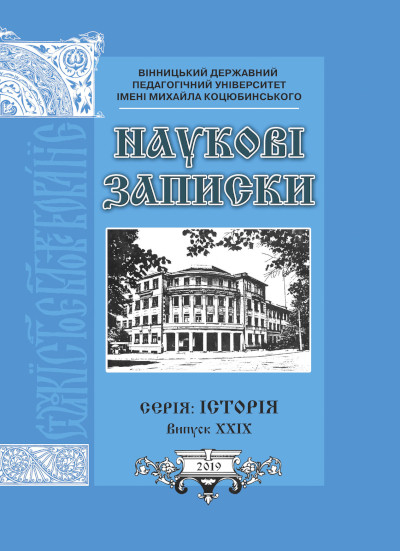Abstract
During Nazi occupation of Soviet territories, in particular Ukraine, a separate large group of enslaved people appeared – “ostarbiters”. So, only from Vinnytsia and Kamyanets-Podilska (now it is Khmelnytska) regions almost 200 hundred people were forcibly removed to the Third Reich for forced work. On the Nazi servitude they suffered inhuman wanderings, they were disenfranchised slaves. After the end of the Second World War and their returning home, the recent latest slaves were in no less difficult situation as the local bodies of state power suspected them of almost treason of their Motherland and had categorized them as probable enemies of the people, as they worked for the enemies in German economy.
On the basis of numerous archival documents and scientific papers as well as on the promising methodological principles the article covers socio-domestic, production problems faced by former eastern forced workers – residents, of Vinnytsia and Kamyanets-Podilska regions, during the first post-war years, returning to their native land. So, in addition to objective difficulties, associated with the post-war devastation, they constantly had to tolerate insults, unfounded suspicions as to the unreliable category of the population and even feel open disregard. As in Germany, the living conditions were extremely unsatisfactory. Many repatriates had to live in cold dugouts. Because of low wages there were problems with food, they were not able to buy necessary clothing and footwear. The material production base was unsatisfactory because during the passing fronts and military actions many schools and other social and cultural objects were destroyed, that’s why they had to work in adapted semi-destroyed buildings, all that multiplied the existing difficulties.
The proposed scientific article also covers the everyday life of Soviet reality, conditions, in which the former civilian slaves of the Reich – the victims of two dictatorships, had to adapt to a new life. In general they seemed to be on the sidelines of Soviet society, becoming a secondary socium.




